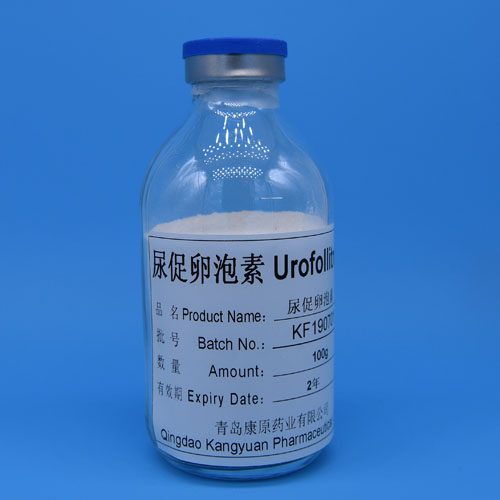Follicle-stimulating hormone (follicle-stimulating hormone, FSH) is a
glycoprotein gonadotropin synthesized and secreted by basophils in the anterior
pituitary gland, controlled by a follicle-stimulating hormone-releasing hormone
secreted by the hypothalamus. FSH has the functions of regulating the growth,
sexual maturity, and reproduction of the body, and plays a vital role in the
reproductive process. FSH can promote the development of male seminiferous
epithelium, and stimulate spermatogenesis and sperm maturation; the function of
FSH to women is to stimulate follicle development, promote follicle maturation,
promote ovulation, stimulate multiple follicular developments, inhibit ovarian
atresia, induce aromatase activity, stimulate Granulosa cell proliferation and
induction of luteinizing hormone (LH) and prolactin (PRL) receptor
production.

During the menstrual cycle, the concentration of FSH in the blood and the
amount of follicle-stimulating hormone excreted by urine vary with the cycle.
After menopause, the excretion of follicle-stimulating hormones in blood and
urine increases. Therefore, urinary gonadotropin (also known as menopausal
urinary gonadotropin, menopausal gonadotropin, Ximeikang, or postmenopausal
gonadotropin) is prepared from the urine of menopausal women, which contains
follicle-stimulating hormone (FSH) and luteinizing hormone (LH ), and highly
purified urinary follicle-stimulating hormone can be isolated.
FSH is mainly used in anovulatory patients: including polycystic ovary
syndrome patients who do not respond to clomiphene. In assisted reproductive
technology, such as in vitro fertilization (IVF), gamete intrafallopian transfer
(GIFT), and zygote intrafallopian transfer (ZIFT) in patients with
superovulation.